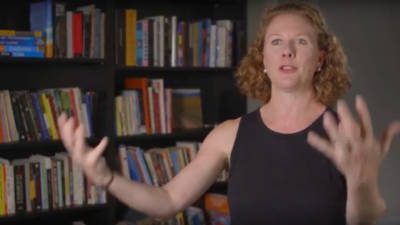Applying to an Arts Program? Here’s How to Prep Your Audition or Portfolio
For students who are actors, dancers, and artists, college admission isn’t dependent on a typical application. Applicants are also expected to send supplemental materials in addition to traditional essays, recommendations, and transcripts. This may be a portfolio for art students or an audition for students who want to pursue dance or theater.
“There are two ways a portfolio or audition can play a role in admissions for university: as a supplement or a core element. Most universities allow artists to submit a portfolio or video audition as a supplement of their main application,” notes Justin Taylor, a tutor at Ivy Tutors Network and a graduate of a Yale MFA program. “These materials will be seen as another way to get to know you as an applicant, but are not required, nor even guaranteed to be seen.”
But for other programs, a portfolio or an audition is required and are weighted differently, depending on the program. Here’s how to prep your portfolio or audition materials.
- Start Prepping Your Materials Early
- Know the Requirements
- Prep for the Interview
College prep for students considering portfolio-based schools may begin a bit earlier than traditional students. You might want to begin gathering your materials beginning spring of your junior year, and work on any necessary materials the summer before your senior year. Taylor recommends sharing work that illustrates the breadth and depth of your artistic practice. This may mean portraits and abstract work for a visual artist or a classic and contemporary piece for a performing artist. Chances are, your teachers may have tips that have worked for previous students. Let them know that you’re prepping your audition materials; they may have suggestions or resources that can help you.
In addition, it can be helpful to talk to alums from your high school who have also gone through the process. “Knowing what to expect and how best to present yourself is key to putting forth a confident and organized application,” notes Troy Portillo, director of operations at Studypool, a digital learning platform. Take their experience with a grain of salt; the idea is to just get a sense of what to expect, since it’s an avenue that most college applicants aren’t familiar with.
Some schools may offer in-person auditions, or may allow video recordings. Auditions may need to be done remotely, which means you’ll need to sign up for an audition slot, which usually occurs in the winter of your senior year. Some schools have unified auditions, which means you’ll attend a central location for multiple schools.
Some schools may also have what’s known as a pre-screen audition. This is a video audition that a school uses to determine whether or not you’ll be invited for a live audition. These may take some coordination, including hiring a videographer. You also might need to hire a pianist if you’re a singer or to make sure that you have access to a soundproof studio if you’re a musician. Plan ahead, so you have plenty of time prior to the deadline to rework your video.
If you are going to a live audition, make sure you have every “what-if” accounted for. Bring an extra instrument if you’re a musician, make sure to pad in plenty of extra travel time, and get enough sleep. You may be tempted to spend the audition weekend exploring a new city or exploring the campus, but also make sure you have time to relax before the audition. “Be sure to have several copies of your audition materials or portfolios prepared, as each department may require different pieces to evaluate your potential,” notes Portillo. Make sure to save your materials in multiple places and check that any uploads have gone through.
It’s not unusual for performance-based schools to also put a lot of weight on an interview. This is to make sure that you would be a good fit in the program. You also might need to provide an “artist statement” that explains a bit about your process, your work, and your point of view. “Your artist statement is a bit more conversational than your traditional essay, like you’re sitting down to an interview about what makes you tick as an artist,” explains Taylor. “Focus on describing both your obsessions—the topics and subjects and experiences you return to again—and again in your artistic practice and in your process, aka how you go about making what you make and why.”
- Have a Few Alternate Plans
- Budget Accordingly
- Make it Meaningful
It can be easy to assume that a particular school is the only avenue to reach your dream—especially when you see their impressive list of alumni. But remember that your future is what you make of it. If you don’t get into a particular school, it doesn’t say anything about your level of talent or skill, it just means that your application wasn’t the right fit for that particular program at that point in time. It’s also good to keep in mind that programs can be incredibly competitive. For example, at Carnegie Mellon’s musical theater program, only six men and six women were accepted for the class of 2022; or one half of one percent that applied.
You might want to consider schools that don’t require an audition, where you might be able to participate in the arts. Or you might decide to pursue arts outside of school and consider a degree in a different field.
Auditioning or preparing a portfolio can be expensive and time-consuming. You may need to factor in travel, professional recordings, or specific audition gear, like dance shoes. Make sure you read through the requirements of each school you plan to attend, and attach a rough cost estimate to each so you can budget accordingly. If you are experiencing financial hardship, reach out to the program you’re interested in. There also may be resources; for example, The Fund for College Auditions is a nonprofit that provides grants to help cover the cost of auditions.
Pursuing a career in the arts can be a challenging road. Think of this as a stepping stone towards your future, and see how you can make the most of the process. Portillo recommends being confident in yourself, who you are, and what you stand for as an artist. If you’ve only auditioned and performed for school, consider finding other auditions around your area prior to the college audition, just to give yourself practice. If you’re a visual artist, ask friends and family to ask you about your work. Become comfortable talking about yourself not just as a student, but as an artist as well.
- Don’t Forget the Rest of the Application Process
While some performance-based programs make certain aspects of the application optional (for example, at NYU’s Tisch School of the Arts, standardized test scores are optional your application is still being evaluated by the admissions office. Transcripts, letters of recommendation, and essays still matter.
In fact, depending on which program you’re applying for, you may need more letters of recommendation than standard applications. It’s not uncommon for arts schools to request letters from your arts teachers, including private teachers in music. Make sure you give yourself plenty of time to complete the application, not just prep for auditions.
Finally, remember that you’re also evaluating the school to see if it’s a right fit for you. Getting to know professors, talking to alums and students, and walking around campus can give you insight into how the school makes you feel. A good fit can be a huge benefit for your academic and artistic life in college.




